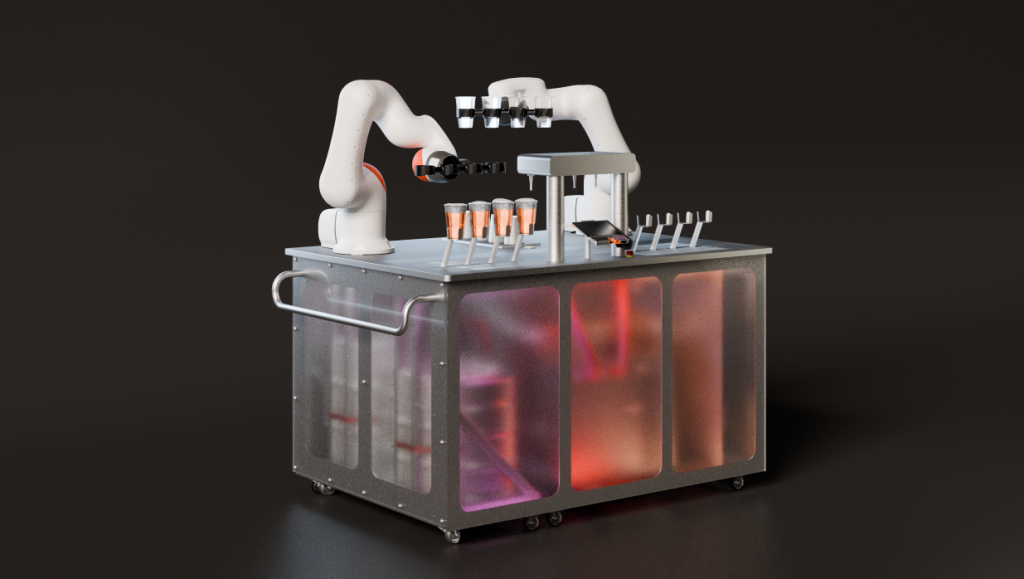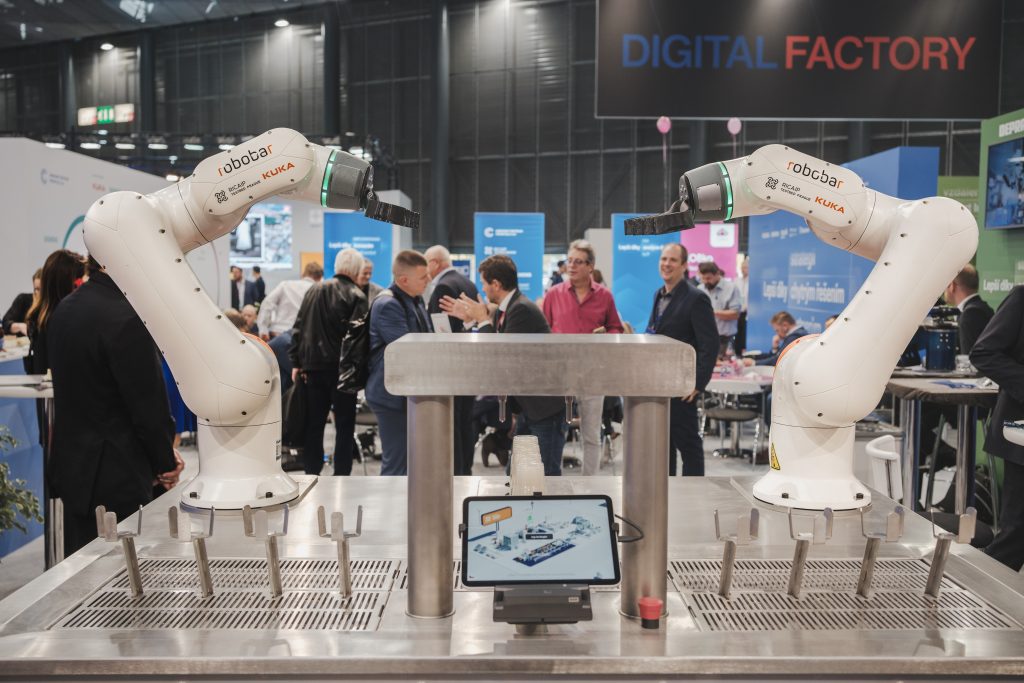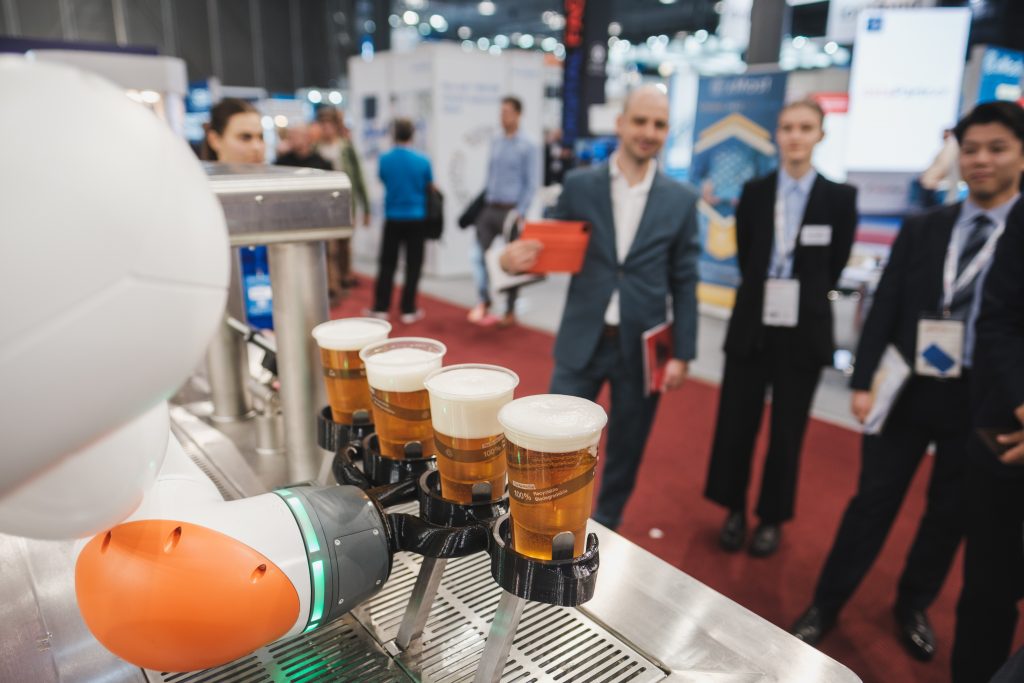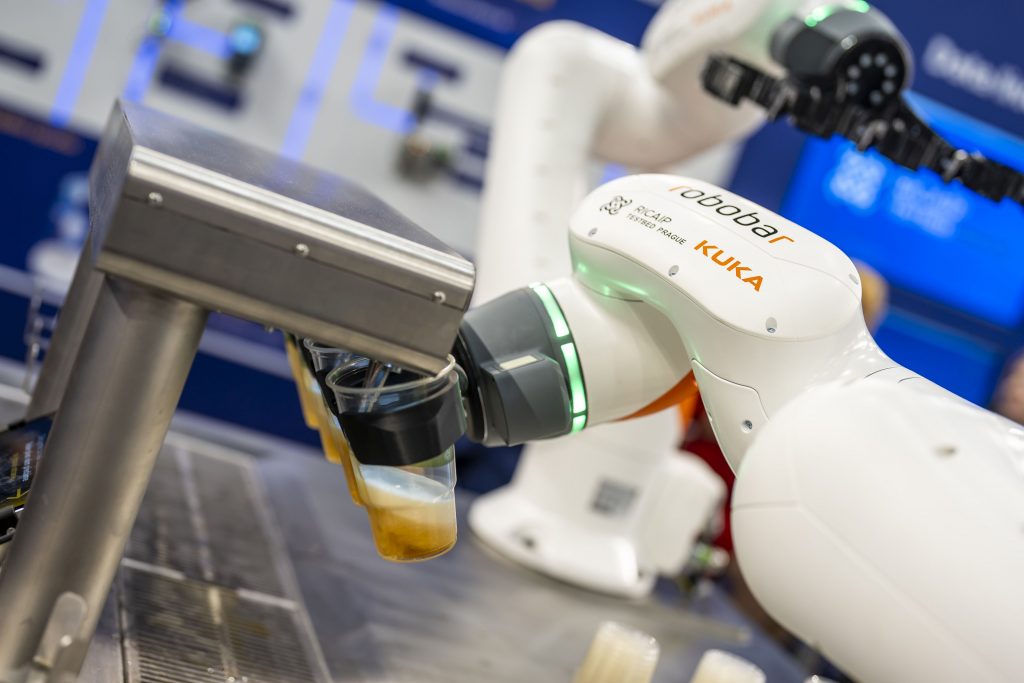For the dynamic field of gastronomy, researchers from the RICAIP Testbed Prague at the Czech Institute of Informatics, Robotics and Cybernetics (CIIRC CTU) have developed a new concept of a robotic bar that transforms traditional notions of beverage preparation. This project combines several cutting-edge technologies, including artificial intelligence, and allows customers to order their favorite drinks with the simple press of a button on a tablet.

The research team has also developed a mobile version focused exclusively on beer dispensing, offering a unique technological solution that combines the precision of robotics with the flexibility of a mobile device. The Robotic Tap System is the latest example of a successful synergy between academia and industrial partners. During the development of the robot tap, a diverse group of specialists with specific knowledge and experience joined the researchers—ranging from industrial design students, who brought fresh ideas to the project, to technology experts and professionals from the fields of structural engineering and mechanical engineering. This collaboration across such a wide spectrum opens new paths to innovation and solving challenges not only in the hospitality industry but also in other sectors.
The mobile robotic tap represents an advanced technological solution with two collaborative KUKA robots, combining artificial intelligence, sensors, and robotics for precise beer dispensing automation. This solution is unique in the gastronomy sector, where it integrates technologies typically used in industry, thus expanding their potential applications. The system includes the YOLO neural network, which analyzes real-time data from cameras, strain gauges, and flow meters, and based on this information, controls the robots’ movements and valve operations. This ensures the optimal ratio of beer and foam and efficient energy operation.

Moreover, the Robotic Tap System is equipped with an advanced diagnostic system that detects and prevents potential issues, minimizing downtime and ensuring smooth operation. Integrated sensors monitor the dispensing process and track cup dispensing, enabling the robot tap to operate autonomously without human intervention (except for barrel replacements) in almost any environment. Each robot can simultaneously serve up to four cups, with the dispensing process designed to ensure that the average time for serving one beer is under 10 seconds. The neural network ensures precise dispensing even under changing conditions, such as when a barrel is running out or being replaced.
This system demonstrates how neural networks can efficiently manage processes that are difficult to model physically, evident in the constant quality of the beer even under more complex conditions. Other significant elements of the system include a specially designed control panel and a module for customer age identification, which is one of the conditions for operating the robot tap without human staff. Thanks to integration with the IoT cloud, the Robotic Tap System can analyze data to optimize performance and allows remote management, which reduces operational costs and increases efficiency.
The advanced phase of the Robotic Tap System’s development was funded through the support of the European Digital Innovation Hub at CTU (EDIH CTU), which focuses on assisting small and medium-sized businesses with implementing innovative technologies. This support primarily covered the work of the development team.


For experimental purposes and development, the KUKA robots for the project were lent. However, the project is intended for commercial financing, opening the door for further partners. The concept also includes integration with a payment gateway, with current solution options being discussed with Česká spořitelna.
This example of a development project shows how university research can be effectively transferred into the commercial sphere. The development of the advanced prototype was supported by EU-funded programs and the National Recovery Plan, but additional resources are needed for completion and commercial deployment. These resources can be secured either directly by end-users of the technology or by financial institutions specializing in innovation support.
The final pilot tests were conducted at the International Engineering Fair in October 2024, where the Robotic Tap System served over 1,200 beers and provided valuable data for improving the neural network model for dispensing control. Another presentation took place at the Smart City Expo in Barcelona in November 2024, where the system was showcased as an example of technological innovation with potential for expansion beyond the gastronomy sector. The long-term goal of the project is to further increase the system’s autonomy and expand its functionalities, including the possibility of individualized pouring style choices.
Authors of the article are Dr. Pavel Burget and Serhii Voronov from RICAIP Testbed Prague, CIIRC CTU.
